News
-
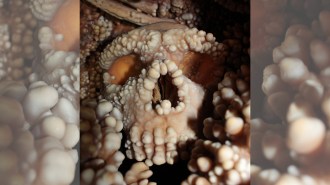 Anthropology
AnthropologyBig Neandertal noses weren’t made for cold
Tiny cameras threaded inside a Neandertal skull provide evidence that their big noses were not an adaptation to cold climates.
By Tom Metcalfe -
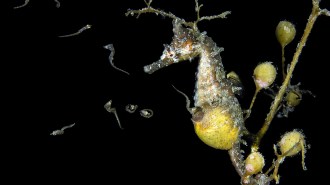 Animals
AnimalsHow male seahorses tap into their mothering side
By studying the genes responsible for the seahorse’s brood pouch, researchers uncovered a new route to “motherhood.”
-
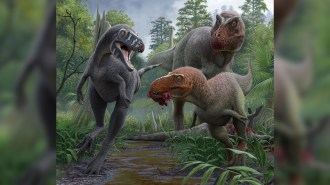 Paleontology
PaleontologyNanotyrannus is still not a teenage T. rex
Nanotyrannus wasn’t a juvenile T. rex but a petite adult of a separate species, a new study of fossil hyoid bones finds, bolstering a recent report.
-
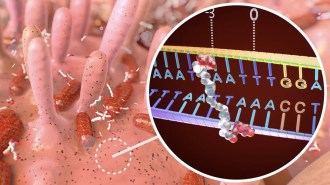 Health & Medicine
Health & MedicineHow a bacterial toxin linked to colon cancer messes with DNA
A closeup look at colibactin’s structure reveals chemical motifs that guide its mutation-wreaking “warheads” to specific stretches of DNA.
By Elise Cutts -
 Psychology
PsychologyChatbots spewing facts, and falsehoods, can sway voters
Chatbots that dole out fact-laden arguments can sway voters. Those facts don’t have to be true.
By Sujata Gupta -
 Earth
EarthA volcanic eruption might have helped bring the Black Plague to Europe
A volcanic eruption may have triggered a deadly chain of events that brought the Black Plague to Europe in the 14th century.
-
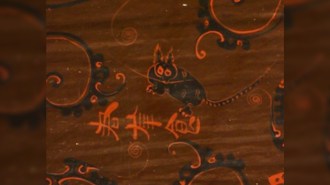 Animals
AnimalsAncient DNA reveals China’s first ‘pet’ cat wasn’t the house cat
The modern house cat reached China in the 7th century. Before that, another cat — the leopard cat — hunted the rodents in ancient Chinese settlements.
-
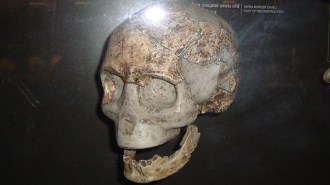 Humans
HumansAncient southern Africans took genetic evolution in a new direction
An ancient, shared set of human-specific genes underwent changes in a geographically isolated population after around 300,000 years ago, scientists say.
By Bruce Bower -
 Earth
EarthHuman-caused earthquakes are real. Here’s why even stable regions can snap
Human activity can cause “healed” faults to release their stored strength, triggering unexpected quakes in tectonically stable regions.
-
 Physics
PhysicsTwisted stacks of 2-D carbon act like a weird type of superconductor
“Magic-angle” graphene may provide new clues into poorly understood unconventional superconductors, which operate at higher-than-normal temperatures.
-
 Health & Medicine
Health & MedicineSelf-hypnosis with cooling mental imagery could ease hot flashes
Postmenopausal women who listened to self-guided hypnosis recordings daily for six weeks saw meaningful improvements in hot flash symptoms.
By Meghan Rosen -
 Health & Medicine
Health & MedicinePersonalized ‘prehabilitation’ helps the body brace for major surgery
A small study finds that individualized prehab can dampen harmful immune responses and may reduce complications after an operation.
By Anna Gibbs